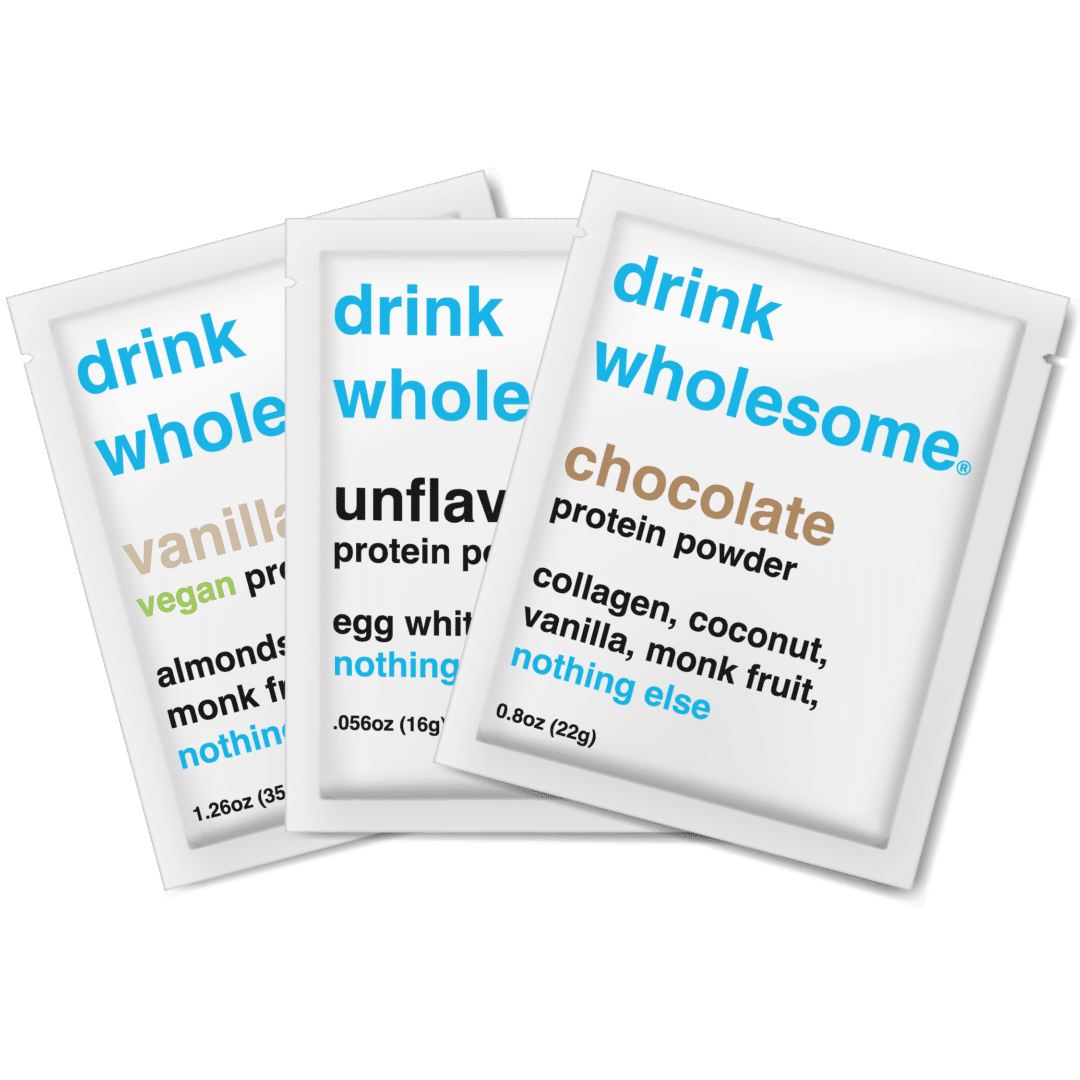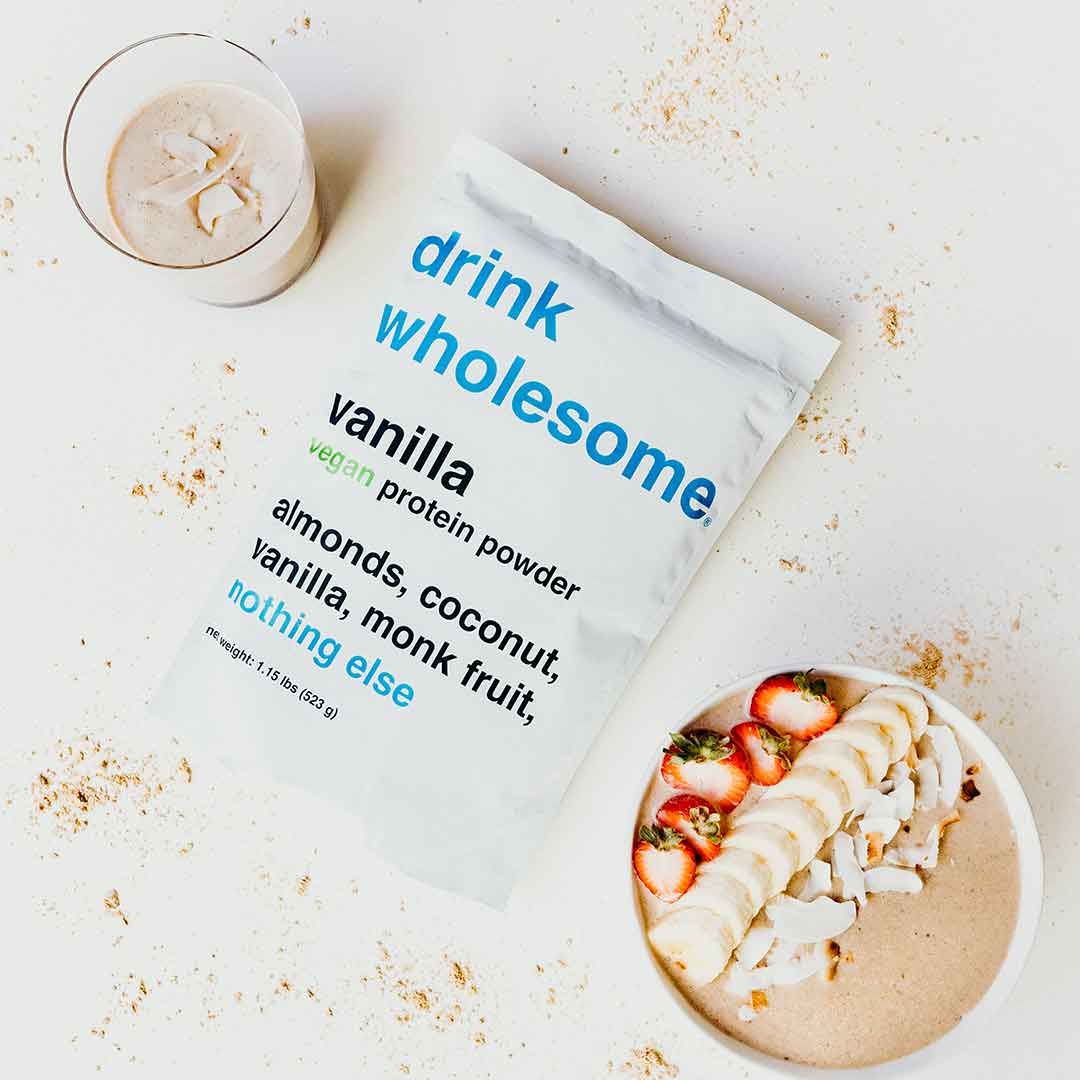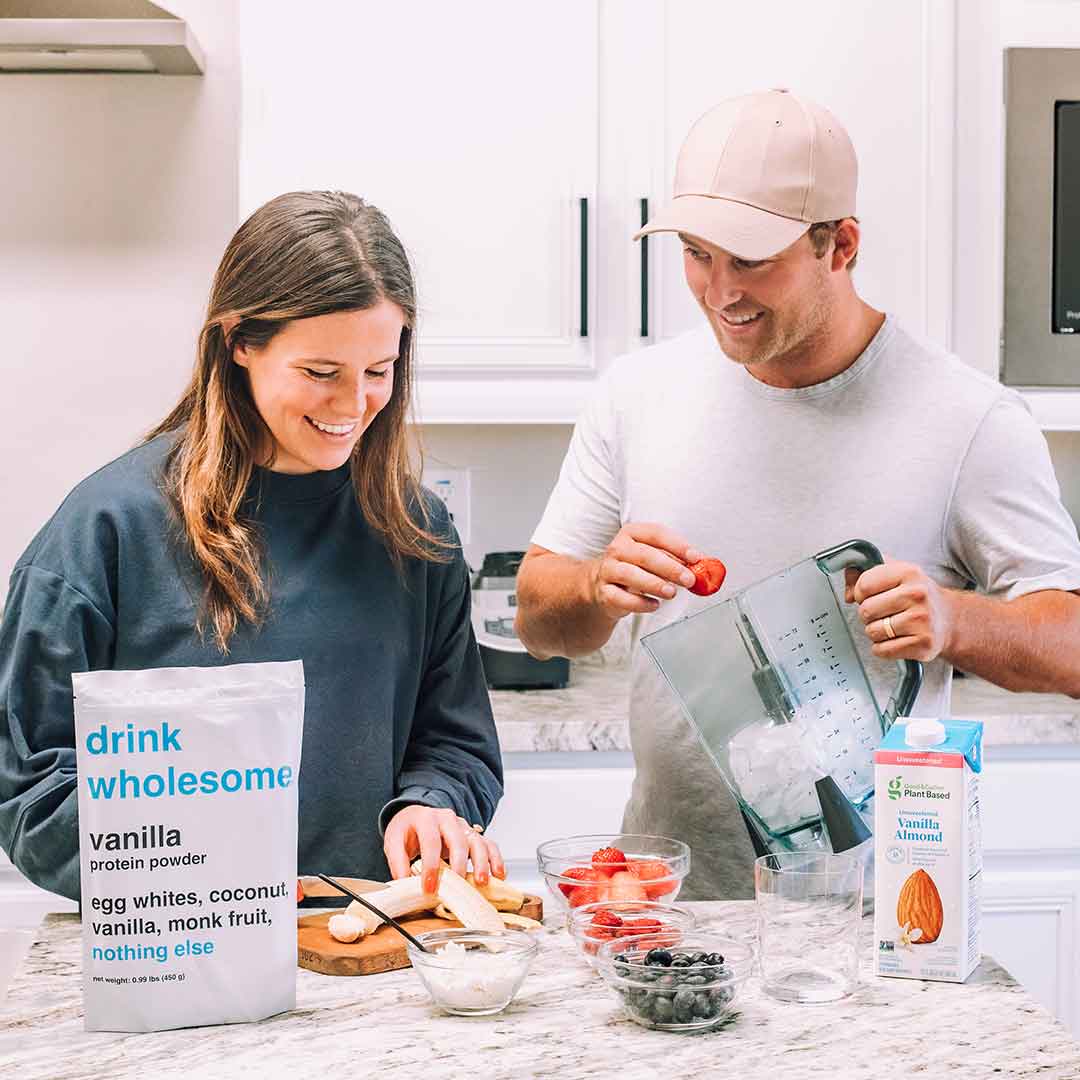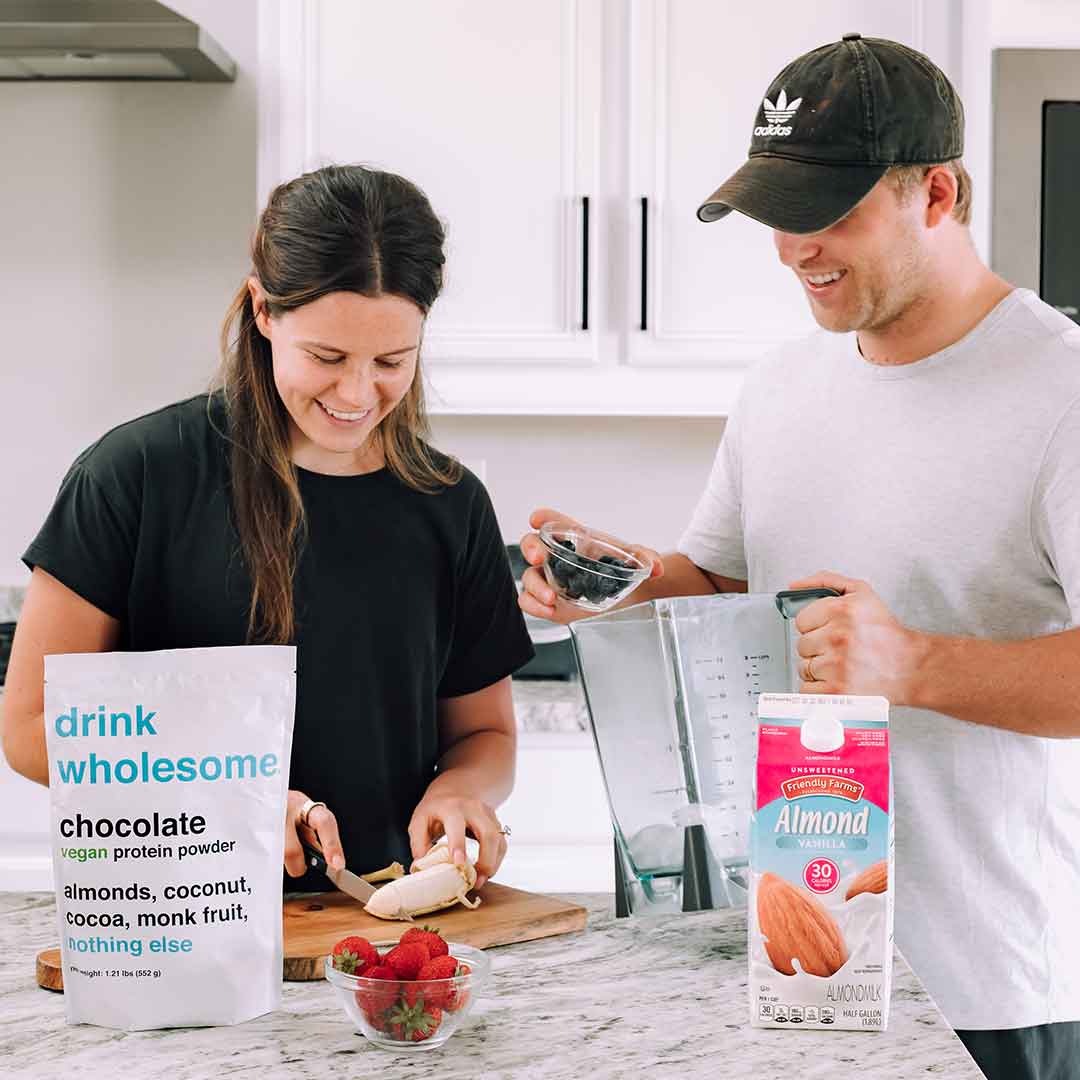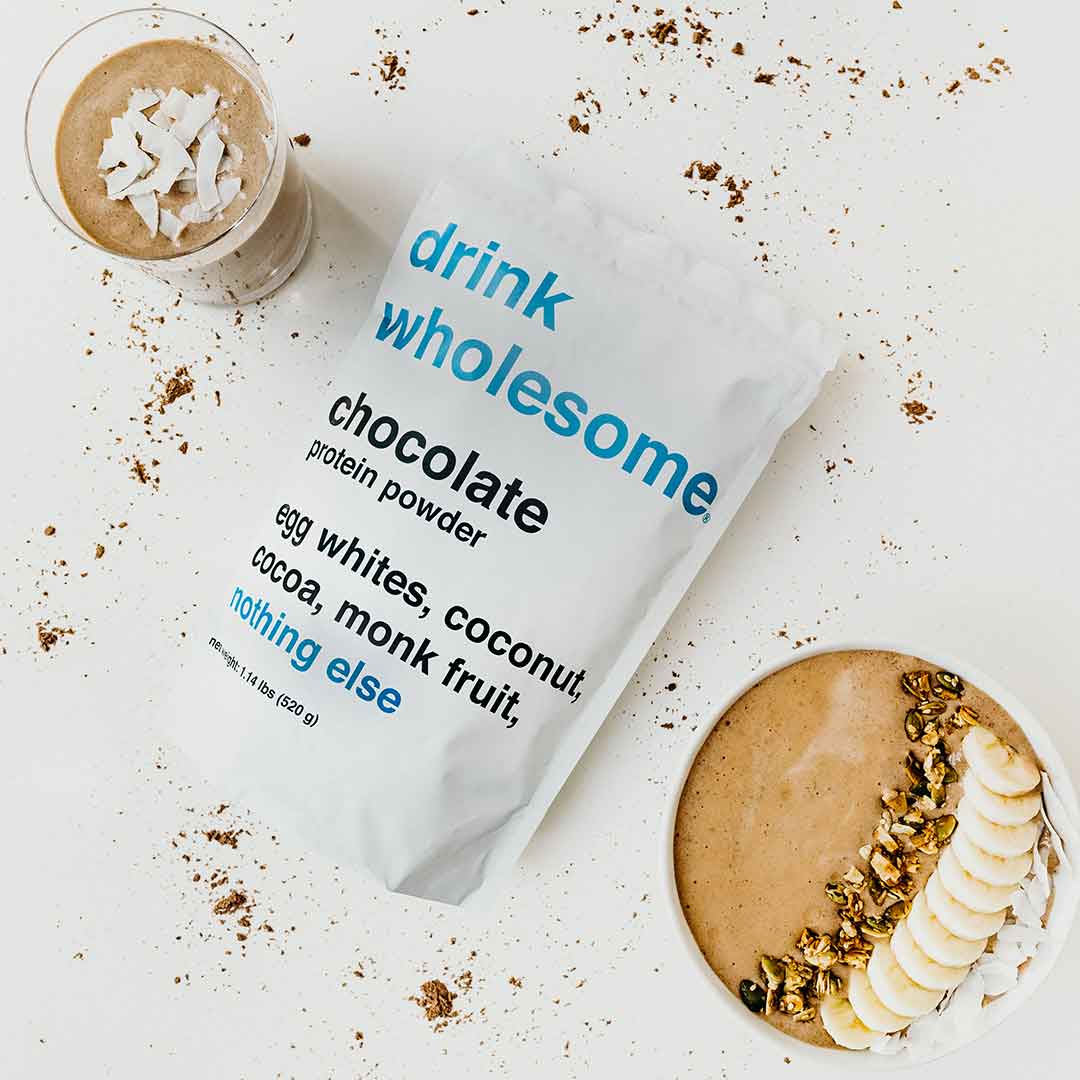Protein bars vs protein shakes.
What is a protein bar?
Protein bars are a high protein snack designed to help people boost their protein intake. Many people enjoy protein bars because they are convenient. You can eat a protein powder pretty much anywhere at any time, and doing so requires no cooking or cleanup. The average protein bar contains 10–20 grams of protein.
What is a protein shake?
A protein shake is a high protein drink designed to help people boost their protein intake. There are two types of protein shakes, ready-to-drink (store-bought) protein shakes, and protein shakes made with protein powder. In order to make a protein shake with protein powder, you have to mix the powder with milk or water. This requires a blender or a shake bottle, and a little extra time and effort. The average protein shake contains 20-30 grams of protein.
Protein bar vs shake.
Protein bars and shakes are basically two different forms of the same thing: a protein supplement. That said, there are a few differences between the two.
Cost.
Per gram of protein, protein shakes tend to be cheaper than protein bars.
Nutrition.
Protein shakes typically contain more protein than protein bars. They also contain less sugar and fewer calories, which is not necessarily an advantage, but it could be.
Convenience.
In terms of convenience, there is no virtually difference between store-bought protein bars and store-bought protein shakes. When it comes to making protein supplements at home, however, there is a huge difference. Homemade protein bars take at least an hour to make because they need to be refrigerated. Homemade protein shakes, on the other hand, can be made in just seconds if you have a good blender.
Use.
It is easier to swallow your food than it is to chew it. For someone who has trouble eating solid food, this is a good reason to choose protein shakes over protein bars.
Digestibility.
It is easier to digest food in liquid form, so if you have gut issues or a sensitive stomach, protein shakes are a better choice than protein bars.
Portability.
Protein bars do have one distinct advantage over protein shakes: they are easier to transport. A protein bar is far lighter than a protein shake, and takes up less space in your bag, car, etc. That said, if you were looking to stock up on protein supplements, buying protein powder is the way to go. You can pack far more protein in your pantry in the form of powder than in the form of bars.
Summary.
Considering variables like cost, nutrition, convenience, consumption, digestibility, and portability, protein shakes are the clear winner in my book. This is not to say that protein bars are a waste of money, it is just that if I were to choose one over the other, I would choose protein shakes every time.
Given the wide variety of protein bars and shakes on the market, it is important to know that not all protein supplements are created equal. Unfortunately, many store-bought protein bars and shakes are full of food additives, heavily-processed ingredients known to cause uncomfortable side effects. This is why I recommend that you make your own protein shakes with protein powder. Unfortunately, however, many protein powders also contain food additives. You will therefore have to read ingredient lists to find the good ones. Keep reading to learn more about the top ingredients to avoid when buying protein supplements.
Again, many protein bars, shakes, and protein powders are full of food additives. Although not necessarily bad for you in small quantities, additives can add up quickly (especially if you drink a protein shake every day) and cause gastrointestinal (GI) side effects like bloating, constipation, diarrhea, gas, and stomach pain. This is because food additives are hard to digest, and sit in your gut for longer than food should, which gives your gut bacteria more time to eat. As they eat, these bacteria produce gas, which causes bloating and stomach pain. Gas also slows colonic transit (the amount of time it takes food to travel through the colon), and can lead to constipation. In the long term, food additives can disrupt regulatory pathways in the intestine, which can result in the development of inflammatory bowel disease (IBD) and systemic inflammatory disorders.


